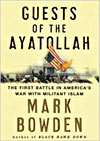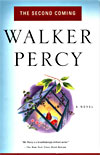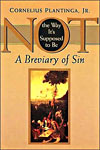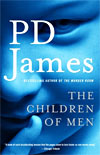It’s summer — the season when kings and princes go off to war, and citizens depart for the beach. High schoolers are introduced with much shock to the reality that they have assigned reading over the summer. Those of us that didn’t get the memo that summer wasn’t for reading compile lists. Here’s mine:
Mark Bowden’s, Guests of the Ayatollah: The First Battle In America’s War With Militant Islam is essential reading if you want to be in-the-know on what is happening in Iran. Sure, it covers events that occurred nearly thirty years ago, but it the Iran embassy hostage crisis in 1979 is not unrelated events today. Bowden’s compelling narrative of the event provides a page-turning account of the lives of the hostages, the hostage takers themselves, and the often Keystone Cop-like efforts of American politicians who wanted to end the crisis. Based on painstakingly detailed interviews, Bowden’s account will emerge as the definitive work on the crisis — if it hasn’t already.
Walker Percy (sorry, not related to Walker, Texas Ranger) is like Dostoevsky with wit. His novels explore the depths of life’s ultimate questions in a way that leaves the reader wondering how such quirky characters carried them to the edge of such profound ponderances. The Second Coming is a novel about rich, middle-aged man who may or may not be going crazy, and an escaped mental patient who has already been down the crazy road for quite some time. All of this craziness leads up to, in typical Walker Percy fashion, unparalleled sanity.
There’s nothing like setting out the chairs by the surf, putting up an umbrella, and curling up to a good book about sin. Doesn’t that whet your appetite for Cornelius Plantinga, Jr.’s book, Not the Way It’s Supposed to Be: A Breviary of Sin? I thought so. A topic often avoided these days, this book tackles things like why we sin, the relationship between addiction and sin, and perhaps most important: what sin is. Plantinga describes it as a breaking of shalom — like the title, it means that the fruits of sin are that things are not the way they are supposed to be. A thought-provoking look at a topic we all deal with and wished we didn’t.
A society where the accepted norms are based on fiction often needs fiction to show it the truth. In western nations, where life is often more of a question than a privilege, exaggeration of experience can shed light upon areas and ideas that would otherwise be obscured. P.D. James’ 1993 novel, The Children of Men is a work where such exaggeration takes place. More poignant (and profoundly Christian) than its 2006 cinematic counterpart, the novel reflects the outworking of a society of extremes where people will eschew all ethical boundaries in order to bring about life, all the while seeking any way possible to attack the lives of those most helpless. A haunting read. Don’t see the movie on this one. Read the book.



